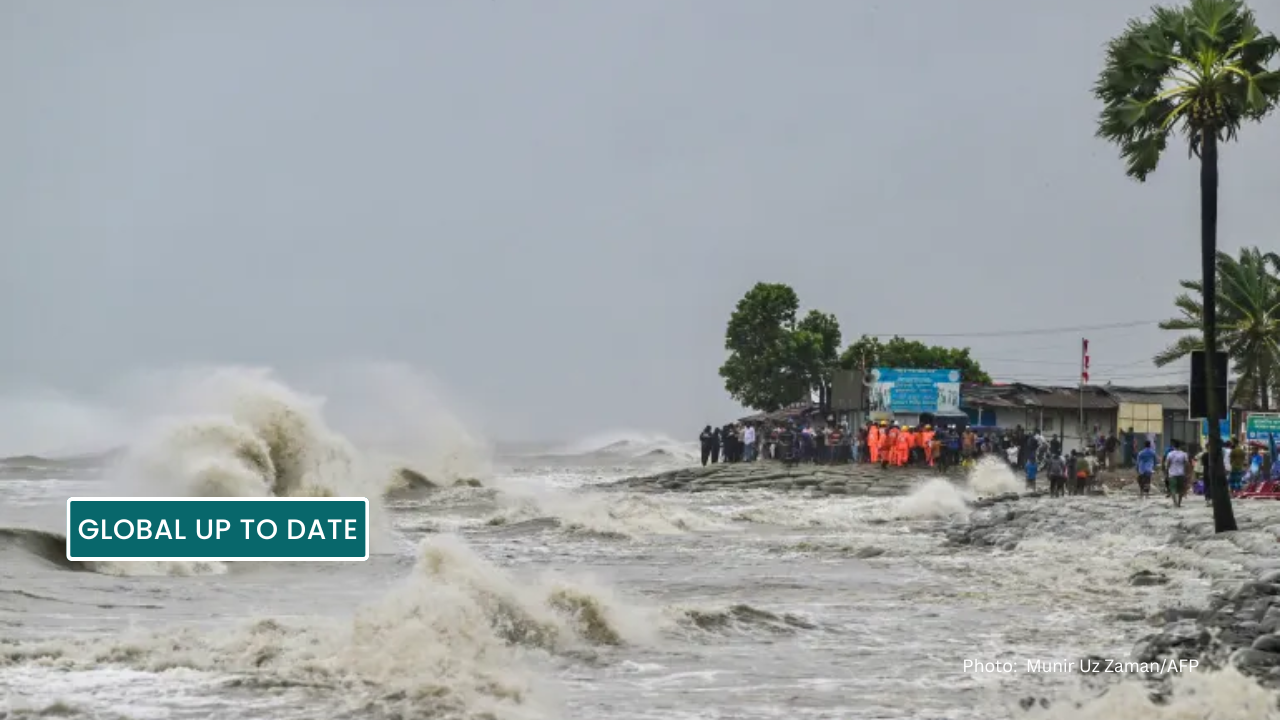Climate Change: A Global Tapestry of Extremes and the Tale of Cyclone Remal
Kazi Rhid | 30 May 2024
Climate change, an intricate and multifaceted phenomenon, casts its shadow across every corner of our planet. Its impact reverberates through a tapestry of extreme weather events, serving as an urgent call to action. The past year stands as a stark reminder of the relentless nature of this global crisis, as it shattered records and disrupted lives. On a global scale, we bear witness to an alarming pattern of climatic extremes.The United Nations Framework Convention on Climate Change (UNFCCC) has sounded the alarm: the past seven years are poised to become the warmest on record. Simultaneously, sea levels surge to new heights, and ocean acidification persists unabated. The Intergovernmental Panel on Climate Change (IPCC) echoes these findings, emphasizing the rapid and intensifying changes across the entire climate system. From unprecedented rainfall events in China and Europe to the devastating wildfires that ravage the landscapes of the USA and Australia, the unmistakable fingerprints of climate change are etched upon our world.
In South Asia, the situation is particularly dire. The region is grappling with the brunt of global warming, which is expected to reach the perilous 1.5°C level as early as the 2030s. This rapid rise in temperature is predicted to exacerbate extreme weather events such as flooding and droughts, posing a significant threat to the region's biodiversity, food security, and human health.
In Bangladesh the recent Cyclone Remal is a stark example, described by experts as one of the quickest-forming and longest-lasting cyclones they have seen, with its rapid formation and extended duration attributed to the changing climate. The cyclone, which also affected neighboring India, caused widespread destruction, including at least 23 deaths, the destruction of thousands of homes, and significant agricultural and infrastructural damage. The storm's longevity and intensity, with some areas receiving at least 200mm of rain, led to breached embankments and flooded farmlands, exacerbating the vulnerability of the affected populations. This severe cyclonic storm that has been linked to the broader narrative of climate change. The cyclone's persistence and intensity have been attributed to atmospheric conditions shaped by the changing climate. Experts have noted that Cyclone Remal was one of the quickest-forming and longest-lasting cyclones they had seen. The connection between Cyclone Remal and climate change is not coincidental but rather indicative of a larger pattern of increasing frequency and intensity of such events.
The city dwellers of the capital who weren’t directly impacted by the cyclone were sort of hoping for the storm to hit the city so they would get a relief from the scorching heat in the recent weeks. The hope was soon squandered as the storm died down the heat started getting back up within a day. The humidity had risen to be very uncomfortable, there were no relief that the residents had hoped for. The use of air conditioning started back up within two days. The heavy winds and the calamities of trees falling all over the city had taken a toll on average commuters. Many people didn’t have an option but to go to work within this hostile environment. The drainage system couldn’t take the sudden heavy rainfall which resulted in waterlogging at several parts of the city. The power outage was prominent throughout the country, it didn’t spare some parts of the capital as well. Millions of dollars’ worth of damage was done to infrastructure and the productivity shrunk significantly all across the country because of the weather.
The story of Cyclone Remal is a microcosm of the broader climate crisis. It serves as a poignant reminder that climate change is not a distant threat but a present reality. The events unfolding around the world and the devastation brought by Cyclone Remal in Bangladesh are a clarion call for immediate, rapid, and large-scale reductions in greenhouse gas emissions. As the planet warms, the window for action narrows, and the imperative to act becomes ever more pressing. The need for environment friendly policies goes beyond just the tagline of going green but a necessity for most of the population in South Asia. The tapestry of climate change-related events around the world, with a particular focus on Southeast Asia and Bangladesh, paints a picture of a planet in distress. The narrative of Cyclone Remal is a testament to the interconnectedness of regional events and global climate patterns. It underscores the need for a unified and concerted effort to address the root causes of climate change and mitigate its impacts. The time for action is now, and the world must come together to forge a sustainable and resilient future for all, the local government and private sectors need to work hand in hand to make sure that we can control the ongoing damage as much as possible. Promises of shiny new electronic vehicles are good to look at but we need policy level action that would be advantageous to not only the elites but to the mass of average income and lower income communities.
The views expressed in these write-up are solely those of the author and do not necessarily reflect the policies of CGS.
Kazi Rhid is a Content Strategy Coordinator at CGS
